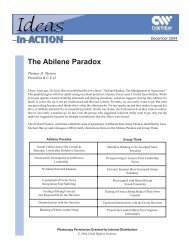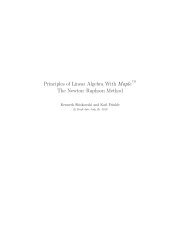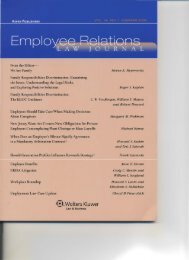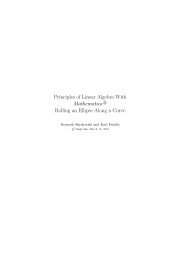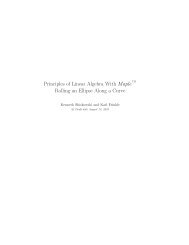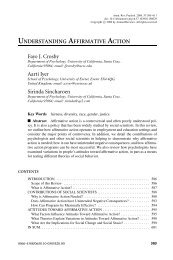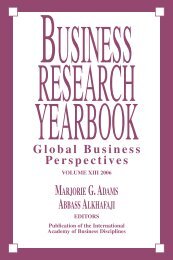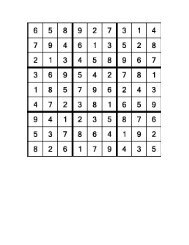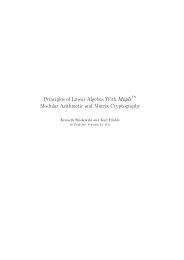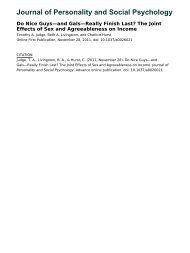www.SE.edu 1-800-435-1327 - Southeastern Oklahoma State ...
www.SE.edu 1-800-435-1327 - Southeastern Oklahoma State ...
www.SE.edu 1-800-435-1327 - Southeastern Oklahoma State ...
Create successful ePaper yourself
Turn your PDF publications into a flip-book with our unique Google optimized e-Paper software.
48 <strong>Southeastern</strong> <strong>Oklahoma</strong> <strong>State</strong> University<br />
D. Science Reasoning Goal--students will<br />
demonstrate the ability to:<br />
1. design an experiment suitable for scientific<br />
investigation to test a scientific hypothesis and<br />
interpret the results.<br />
2. use the basic language of science.<br />
3. identify the unifying principles of science and<br />
apply them to contemporary issues of science,<br />
technology, and society.<br />
4. use and interpret formulas, graphs, and tables.<br />
5. differentiate between scientific and non-scientific<br />
explanations.<br />
6. evaluate the interaction between science and<br />
societal change.<br />
E. Critical Thinking Goal--students will demonstrate<br />
the ability to:<br />
1. reason by d<strong>edu</strong>ction, induction, and analogy.<br />
2. distinguish between cause and effect.<br />
3. examine information for alternative explanations<br />
and possible implications.<br />
4. solve problems described verbally, graphically,<br />
symbolically, or numerically.<br />
5. identify, analyze, and evaluate arguments.<br />
F. Social and Political Institutions Goal--students will<br />
demonstrate the ability to:<br />
1. critically evaluate at least one major period in<br />
history by explaining the factors such as political,<br />
demographic, geographic, social, cultural, and/or<br />
technological that influenced the thoughts and/or<br />
actions of citizens, immigrants, and indigenous<br />
people.<br />
2. discuss the origins, organization, and/or<br />
operation of the political and/or governmental<br />
functions of the United <strong>State</strong>s of America.<br />
3. understand the origins and processes of<br />
political, social, and/or economic institutions in<br />
the context of a dynamic global community.<br />
4. think critically about how individuals are<br />
influenced by current and previous political,<br />
social, economic, and/or family institutions.<br />
5. understand the role of geographic factors in<br />
shaping today’s world.<br />
G. Wellness Goal--students will demonstrate the ability<br />
to:<br />
1. identify the elements necessary to maintain a<br />
healthy lifestyle including physical, emotional,<br />
social, mental, and spiritual dimensions.<br />
2. describe the impact of diet, life style, physical<br />
activity, environment, genetics, and mental<br />
health on living well.<br />
3. critically examine contemporary health and<br />
wellness topics.<br />
H. Humanities Goal--students will demonstrate the<br />
ability to:<br />
1. understand the diversity human experience<br />
through an examination of human cultures and/<br />
or artifacts.<br />
2. evaluate current cultural and societal activities in<br />
light of their historical roots.<br />
3. identify selected influential and representative<br />
scholarly, literary, and artistic achievements of<br />
the past.<br />
I. Fine Arts Goal--students will demonstrate the ability<br />
to:<br />
1. identify and explain at least one major form of<br />
artistic expression and the creative process<br />
therein.<br />
2. recognize that interpretation of works of art<br />
may be influenced by the social and cultural<br />
environment and change through time.<br />
3. appreciate the fact that the fine arts enrich their<br />
lives.<br />
J. Ethics and Values Goal--students will demonstrate<br />
the ability to:<br />
1. differentiate between moral and other kinds of<br />
problems.<br />
2. tolerate and understand the diversity of human<br />
behavior, points of view, and values.<br />
3. recognize how values are formed, transmitted,<br />
and modified.<br />
Forty-four semester hours of general <strong>edu</strong>cation, distributed<br />
as described in the degree requirements, are required of all<br />
students working toward a bachelor’s degree. Some degree<br />
plans require specific courses to fulfill the General Education<br />
categories stated. Bachelor of (Specialty) requires the same<br />
General Education as the B.A. and B.S. degrees unless otherwise<br />
specified.<br />
GENERAL EDUCATION<br />
AS<strong>SE</strong>SSMENT<br />
All students at <strong>Southeastern</strong> are required to successfully<br />
complete a variety of assessment activities. Students from<br />
all undergraduate classifications are selected to participate in<br />
university-wide mid-level testing either on assessment day or<br />
in targeted courses each semester. The mid-level assessment<br />
is administred on the first Wednesday in March and October.<br />
University-wide assessment examines the general <strong>edu</strong>cation<br />
skills of students in the areas of reading, writing, mathematics,<br />
science reasoning, and critical thinking. Students selected for<br />
mid-level assessment are notified that their enrollment in the<br />
following semester will be delayed if they fail to successfully<br />
complete the assessment test when notified. Students also<br />
are required to complete departmental assessments in general<br />
<strong>edu</strong>cation courses; this assessment will target specific learning<br />
outcomes addressed by each course. Students also may be<br />
required to respond to surveys, submit samples of their work<br />
for portfolios, or complete exit interviews.



